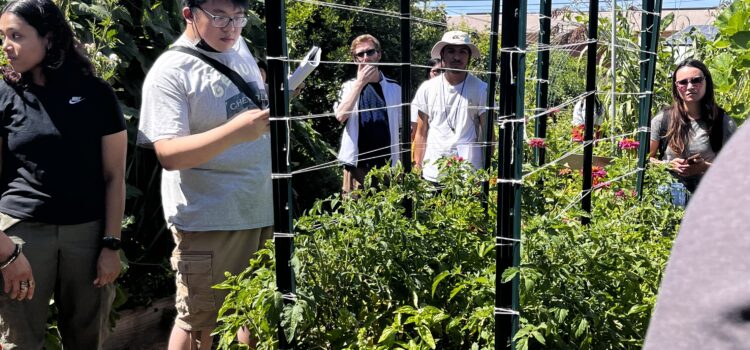
Young Invincibles (YI) launched a survey back in August 2023 asking California higher education students to share their knowledge about basic needs services. In January 2024 the results and findings of this survey have been released. The report titled “Meeting Students’ Needs: Basic Needs at California’s Public 4-Year Colleges” can be found on younginvincibles.org.
YI conducts routine surveys to collect data. They turn that data into evidence-based solutions for college students and send it to lawmakers for funding recommendations. This year’s surveys differ from previous years because of changes made to California law. For example, YI highlighted the California law AB 132 which states each college campus must have a Basic Needs Center that is appropriately staffed.
YI focused on questions like: “Do you know what basic needs services are? Can you accurately define what the services provide? Is the campus basic needs center available and readily accessible for all students?”
Sarah Bouabibsa M.A., the author of the report for the latest survey findings, explained the survey results showed that students know what basic need services and they need them however there is a decline in students using the services. The students who use the services are more likely to in the summer semester than in the fall. Bouabibsa suggested this may be due to negative stigma around being seen or known as a person who utilizes food pantries, EBT and other governmental aid, or counseling services.
“What we do find a difference in is their actual usage of these services,” said Bouabibsa. “And we know that’s not because they don’t need the services, right, we think that further research into why students aren’t using the services when they know about them and need them is worth looking into in the future.”
YI found that most students knew where the services were located and what was available but they did not use the service. The recent survey showed that some students struggled to get to basic needs services during business hours, defined as Monday through Friday 9am to 5pm.
Bouabibsa explained how the problems with access and usage of services are more than negative stigma and also include the disconnect between providers and clients. Most students reported being more comfortable using services from other students like them.
Some solutions YI recognized were starting committees on campuses to further involve students with decision making and looking at other colleges who have successfully implemented student-lead solutions.
“We think Compton College did a great job at looking at creative ways to use funding to address basic needs issues on their campus. So we say that Compton College can kind of be used as a model for both CSU and UC’s,” stated Bouabibsa.
Compton College’s report on basic needs services was featured in Bouabibsa’s and YI report on the survey. If you’re an educator YI encourages you to look into the colleges success with serving it’s community.
“In addition to that we would definitely say reading our report and looking at our findings and recommendations is another piece of advice we’d give institutions and colleges,” Bouabibsa said.
Kern Sol asked a California State University (CSU) student about her experience with basic needs services. Alia Martinez shared that she helps grow food on campus that’s later donated to the food pantry.
“Within the student pantry they basically have a store, but you don’t pay for anything, but they try to give it the same set up as a store to make people feel less bad about taking things. You know like shopping. You get the same shopping experience,” described Martinez.
For Martinez it’s important for her to let other students know that there’s no shame in using any services.
“Don’t be embarrassed. They’re all like in the same boat together. That’s why we’re offering it, because either we know what it’s like to come from that situation or we’re in that situation already so we’re trying to help everyone else out,” said Martinez.
Martinez concluded by saying, “Don’t feel like you’re alone and you can’t ask for help, because that’s why they’re providing it.”